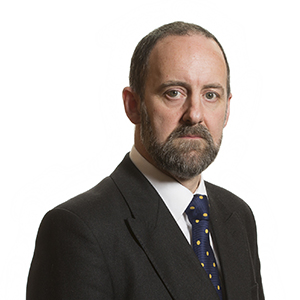
Our construction update addressed some of the key changes, challenges and opportunities facing the construction industry, with the speakers highlighting key issues and offering practical advice. If you would like to watch a copy of the webinar recording please contact our events team.
Summary of the event
Simon Rowland, Partner and Head of Womble Bond Dickinson’s Construction and Engineering Team, opened the conference by highlighting the challenges faced by the industry over the last year - such as COVID-19, Brexit, and the unprecedented levels of materials, labour and HGV driver shortages - which the industry continues to work to overcome.
He also emphasised that it is important to stay on top of what is happening in the sector and to react to that, but at the same time it is vital to have an eye to the horizon to understand what is coming next and to prepare ourselves for that too. The speakers therefore aimed to address both of these perspectives, by updating attendees on important recent developments, and to give attendees an idea of what they need to be thinking about now to prepare for the future.
Defective buildings: bringing successful claims
Jessica Tresham, Partner and Emily Leonard, Managing Associate, Womble Bond Dickinson were the first speakers, providing an overview of important points to consider in making defects claims.
Emily explained the difference between patent and latent defects (patent defects being discoverable on reasonable inspection, unlike latent defects which are concealed flaws). She then went on to explain why this distinction matters, in terms of practical completion, money and claims. Emily stressed the need to issue the correct documentation at the right time in terms of monitoring defects during the defects liability period and maintaining adequate records during this stage, in case required later. She also emphasised the importance of disputing the final statement (if it is not agreed, and to prevent it from becoming conclusive evidence on the disputed points) within the timeframes provided for in the contract, to consider the appropriate form and forum for disputing the final statement, and to think about having "something in your back pocket" in case the first attempt at disputing the final statement does not work out quite as planned.
Jessica built upon Emily's points further, looking at latent (concealed) defects, and how the timescales for claims for these will differ depending on whether the party potentially responsible is a contractor or whether they are a consultant or professional. She also explained how these timescales were different depending on whether there was a contract, whether that contract was simply signed or executed as a deed, what the position might be if there was no contract, and how timescales could be extended under the Latent Damage Act or where there was suspected fraud. She also looked at settlement agreements, and whether these could potentially compromise future claims for undiscovered latent defects, and provided tips on negotiating release clauses in these agreements.
Modern Methods of Construction: ESG the "perfect partnership"?
Stephen Wightman, Regional Director – UK MMC Lead, from Faithful+Gould looked at how Modern Methods of Construction (MMC) can deliver real Environmental Social and Governance (ESG) value.
As an expert in MMC, he was well placed to give an overview of what MMC is (i.e. not just modular), explaining that it "should be thought of as a process, not a product". He set out the 7 Category Definition of MMC, giving examples of what these might be, as well as the market sectors where each of these Categories fit best and where we may expect to see them in the future.
Moving on to the relationship between MMC and ESG, he explained that from an environmental perspective MMC benefits included improved performance levels, lower embodied carbon processes, and reduced waste. From a social perspective, MMC brought opportunities for greater diversity and inclusion, particularly for increased workforce representation around disability and gender – plus MMC is safer for workers, has reduced impacts on local communities, and provides better quality and predictability. Quality and predictability are also relevant from a governance angle, and Stephen pointed out that going forward we are likely to see more Environmental Full Cost Accounting, which MMC can assist with.
Pulling the threads together: the Building Safety Bill and related developments
Simon Lewis, Partner, Womble Bond Dickinson, provided an overview of the Building Safety Bill's progress. It was laid before Parliament on 5 July 2021, and heralds a number of changes to building safety, such as a new Building Safety Regulator, a new system of “dutyholders”, and registration of building inspectors and building control approvers. He also provided an update on the Gateway 2 developer levy which was introduced in February 2021, and the Residential Property Developer Tax due to come into force from 1 April 2022 (and he explained where this latter tax would apply).
He summarised what the Golden Thread was, what was likely to happen with Construction Products regulation (including civil and criminal sanctions), extensions to the time limits for bringing claims in relation to defective dwellings to 15 years (and where this new timescale would apply both 15 years retrospectively ie looking back, as well as prospectively looking forward), and highlighted the current timescales for building safety changes.
Health, safety and the environment: what should be on your radar?
Stephen Panton, Partner, Womble Bond Dickinson, looked at recent regulatory developments. From a Health and Safety perspective he noted that there was no confirmed date for when the Fire Safety Act 2021 would come into force or when risk guidance would be published. From an environmental point of view, he explained that for the first time, Enforcement Undertakings were overtaking the number of Environment Agency prosecutions. He pointed out that taking swift remedial action was "no longer seen as mitigation, but an expectation" so it was important to have a plan and understand what support you might need should an incident occur.
He also updated the audience on emerging themes and anticipated outcomes from the Grenfell Inquiry Phase 2 so far, before ending by summarising the Regulators' current areas of focus, which include working at height, controlling mobile plant, dust and noise pollution, worker fatigue, fire safety, waste management, and surface water run-off.
Panel discussion
The conference concluded with a panel Q&A session, in which the speakers answered questions from the audience on:
- whether the practical completion process is different when MMC is involved
- how MMC can address some of the Regulators' current areas of focus on health and safety, and
- whether the Residential Property Developer Tax could help residents in homes that are devalued by their cladding.







